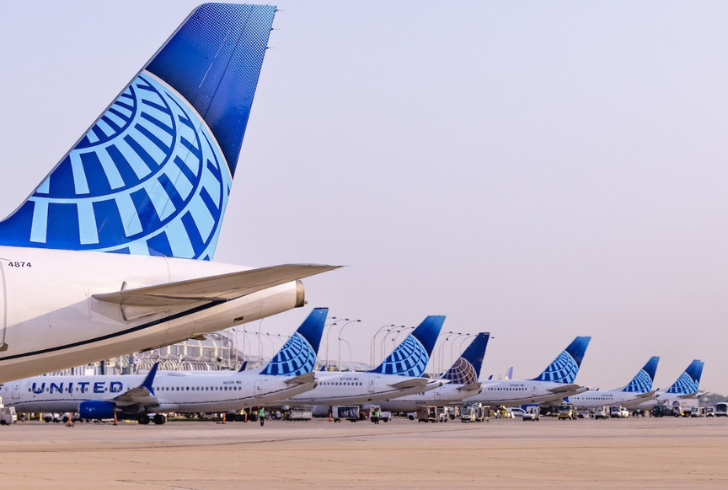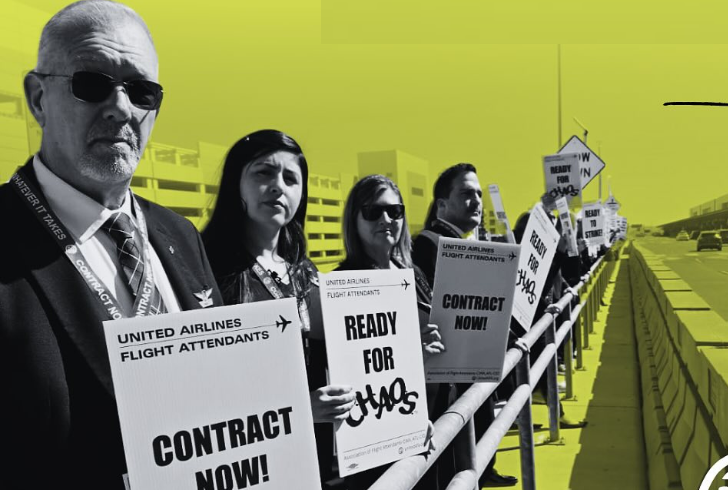Flight Attendants Face New Sick Leave Rules After United’s Arbitration Win
United Airlines has secured a significant legal win, allowing it to enforce stricter sick leave rules for flight attendants on weekends. The decision follows an arbitration ruling that backed the airline’s authority to require medical documentation for absences on Fridays, Saturdays, and Sundays—days that typically see the highest travel volume.
Though temporarily shelved after its introduction, this policy could now return if absentee trends resurface.
Weekend Sick Leave Scrutiny Intensifies
The controversy began in July 2023, when United introduced a new attendance rule at Chicago O’Hare International Airport.
Under the policy:
– Flight attendants calling in sick for trips starting Friday through Sunday had to provide a doctor’s note.
– Documentation needed to be submitted within 72 hours.
– Those who failed to comply risked disciplinary actions, including job termination.

Instagram | @fly2ohare | United Airlines secured an arbitration ruling to enforce stricter weekend sick leave for flight attendants.
This policy arrived in response to a significant increase in weekend absences. United cited a 22% weekend sick rate, much higher than the weekday average. To the airline, this pointed to a pattern of potential abuse during peak periods.
While the rule was intended as a deterrent against misuse, it sparked immediate backlash from the Association of Flight Attendants-CWA (AFA-CWA), which labeled the move as punitive and unjustified.
Arbitration Decision
Despite union objections, an independent arbitrator sided with United and ruled that the company had not violated its collective bargaining agreement. According to the ruling, the agreement permits such measures when there is verifiable abuse of sick leave or operational disruptions.
Even though the rule was suspended weeks after being enforced—once absentee rates fell—this arbitration ruling gives United the green light to bring it back if necessary.
Key Takeaway: The suspension does not equal cancellation. United retains the option to reinstate the requirement should future data show similar absenteeism spikes.
Union Pushback and Legal Avenues
The union continues to argue that the policy exceeds the limits outlined in their contract. According to AFA-CWA, flight attendants should only be required to submit medical documentation during major holidays, such as the Fourth of July or Christmas, not on regular weekends.
Ken Diaz, president of AFA-CWA’s United chapter, said the union’s legal team is reviewing the option of taking the issue to federal court. He also raised concerns about the added stress on crew members.
Recently, United introduced a new rule requiring at least eight hours’ advance notice for calling in sick. If an employee fails to meet that deadline, it could result in a performance warning.
This new policy comes even as United claims there are no current plans to reintroduce the weekend-specific rule. Still, officials acknowledge that weekend call-outs have started climbing again, echoing earlier trends.
Safety and Staffing Concerns

Instagram | @afacwa | United’s sick note rule raises questions about worker rights and airline control.
United isn’t alone in facing challenges tied to crew attendance. Delta and other major U.S. airlines have also seen increased call-outs, especially around major events or holidays.
Some industry veterans point to post-COVID hiring waves, where a rapid influx of newer staff may have changed internal culture or expectations. This, combined with more demanding work conditions, may have contributed to inconsistent attendance.
At the same time, experts warn that aggressive attendance policies could deter genuinely sick employees from reporting their illness, an issue with direct implications for in-flight safety and public health.
While the Department of Labor had previously taken an interest in United’s policy, no recent developments have emerged, especially since the change in presidential administration.
United’s Position Moving Forward
United maintains that the initial policy was a necessary response to maintain operational stability. Sick leave misuse not only disrupts flight schedules but also increases workload on available crew, affecting service quality and employee morale.
For now, United seems to be taking a wait-and-watch approach. However, with the arbitration ruling in its favor, the airline holds a powerful tool that could be reactivated with minimal notice, especially if absentee rates climb again.
What This Means for Airline Employees and Travelers
This ruling may have broader implications across the aviation industry. Other carriers watching closely could be encouraged to enforce similar attendance policies. For airline employees, it signals a tightening of accountability measures. For travelers, consistent staffing means fewer flight disruptions—but it could come at the cost of employee well-being.
The situation is a classic balancing act: ensuring operational reliability without compromising the health and fair treatment of employees.
Whether United chooses to reinstate the policy or not, this arbitration ruling has effectively redefined the boundaries of workplace flexibility for flight attendants, particularly on weekends.